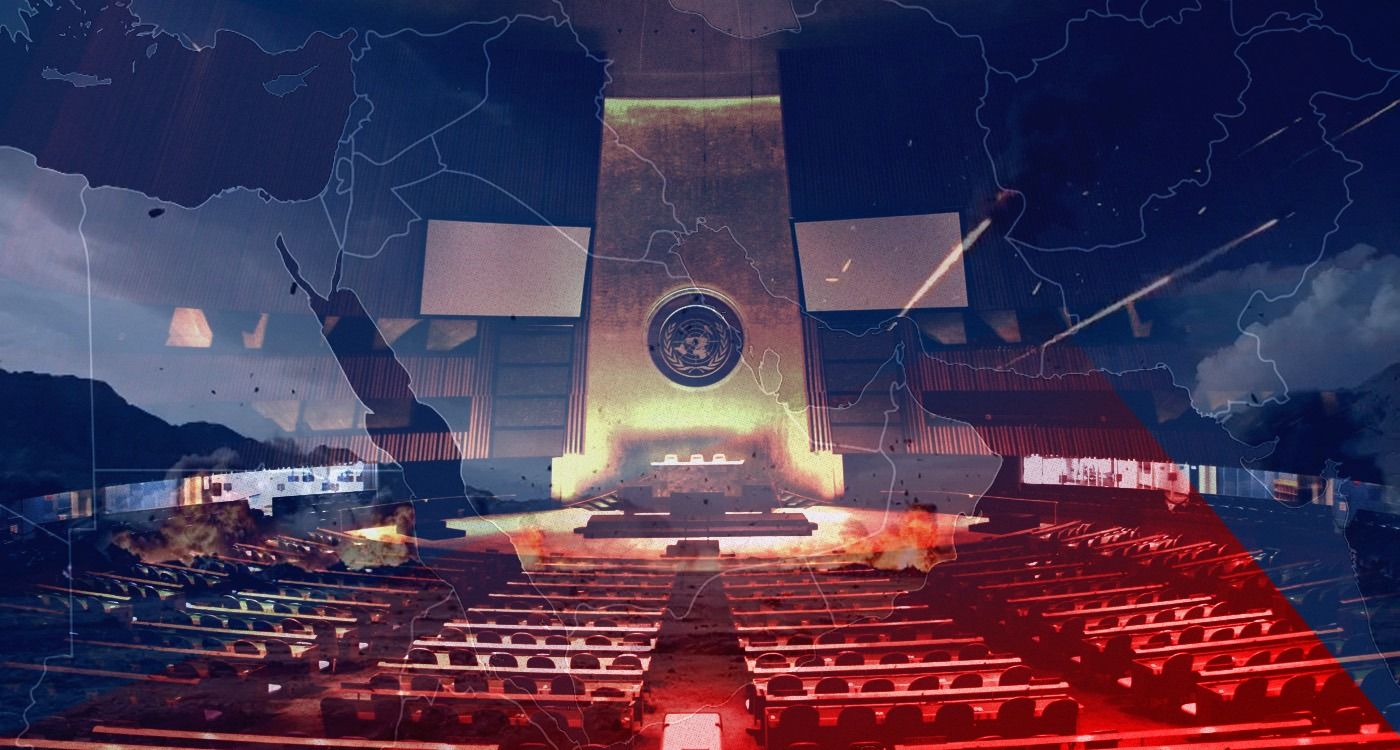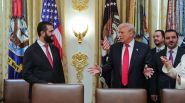- Home
- Middle East
- UNGA 2025 and the Middle East

©This is Beirut
This month brings world leaders together to mark the annual opening of the United Nations General Assembly. Their formal speeches in front of the assembly vary in interest, as many contain more pious platitudes than meaty information. The real work of interest often happens behind-the-scenes, as world leaders meet bilaterally or in small groups to discuss the issues of the day away from the glare of media or the pressure for summits to deliver results. The occasion also provides opportunities for the unexpected to happen. The Middle East will figure largely in these talks. Here are some possibilities of what to expect.
First, who is coming? America's president always makes an appearance, as is only right for the host nation of the UN. His schedule is not yet announced, but with President Trump we have learned to prepare for the unexpected. He may find time to follow up the recent series of Ukraine meetings with separate exchanges with President Putin and President Zelensky. If they are so inclined, the UN meetings would be a perfect and natural opportunity for Trump and Prime Minister Modi to spend time together to patch up their recent divergence of views, without an expectation from either side of concessions.
From the Middle East, many eyes are focused on Syrian President el-Sharaa who will be the first Syrian leader to attend since 1967. His slick PR consultants, and his own abilities, will ensure a speech calculated to appeal to international audiences and to try to allay any concerns about his extremist past and future intentions. But we have had enough words from him; the test now lies in actions, in terms of expelling foreign extremist fighters, cutting his links to, and constraining, the salafi gangs that brought him to power, protecting minorities, and broadening the inclusivity of his government - in essence - ruling Syria in a fair and balanced way, rather than slaughtering opponents. Those kinds of actions will be the test of el-Sharaa, not fine words at the UN.
The Europeans have ensured that the issue of Palestinian statehood will also be in the air at UNGA 2025, even if America has ruled against Palestinian attendance. Recent declarations by Great Britain, France and Germany of plans to recognize a Palestinian state reflect the frustration of leaders and key constituencies of these states. It is also a reflection and manifestation of their inability to do anything relevant to deliver an actual state for the Palestinian people, as opposed to pieces of paper. Traditionally, states were recognized when they acquired through war or diplomacy the attributes of a state, which means sovereign control of territory. Now, Palestine is being recognized as a state on different criteria, those of wishes not facts.
Some may go so far as to say these Europeans are giving an advantage to Hamas and its violent tactics, since Hamas may argue that recognition came as a result of their attacks on October 7, not as a result of decades of unfulfilled diplomatic effort by Abu Mazen. The strangest position of all is that of the UK, which is demanding concessions from Israel, which if unmet, will prompt London to recognize a Palestinian state. The British seem to see recognition as a cudgel against Israel, divorced from Palestinian realities and not the result of hard diplomacy. All of which points to the fact that Europe has little to offer to the solution of the Israeli-Palestinian problem other than hollow words and empty gestures. Not that either America or Israel deserves a passing grade, since neither they nor anyone else has spent the nearly two years of this ongoing conflict devising a plausible way out and a "Day After" strategy to guide security, governance, and economic recovery for Gaza. Without such plans, Israel will be left with no option but a long-term occupation of Gaza, a morass for their security agencies and nation and a tailor-made formula for a renewed insurgency under whatever banner the people there eventually rally around. There has to be a better way.
Finally, the Europeans have put Iran's nuclear program on the UN agenda this fall with their welcome decision to invoke the snapback provisions related to the JCPOA nuclear deal. "Snapback" is an ingenuous formula that enables parties to revert to sanctions without a UN Security Council vote if they find Iran in breach of its JCPOA commitments, which honest brokers such as the IAEA have made clear is the case. The snapback formula expires in October 2025, so the Europeans now seem keen to get it done in September, to ensure the Russians - who take the presidency of the Security Council in October - cannot stymie them. Expect much maneuvering and bargaining over this concept, and a possible extension of the deadline.
The European initiative is a welcome sign of growing international support for applying diplomatic and economic pressure on Iran. It is needed to convince Iran's leaders that their ability to intimidate neighbors through their nuclear program and sponsorship of proxies is no longer a viable path to advance its own interests.
Some of the Middle East-related activity at this year's UNGA will be soon forgotten, but snapping back sanctions on Iran will be one tangible way to sustain the reversal of fortunes suffered by Iran and encourage its leaders to pursue a difference course of action.
Read more




Comments